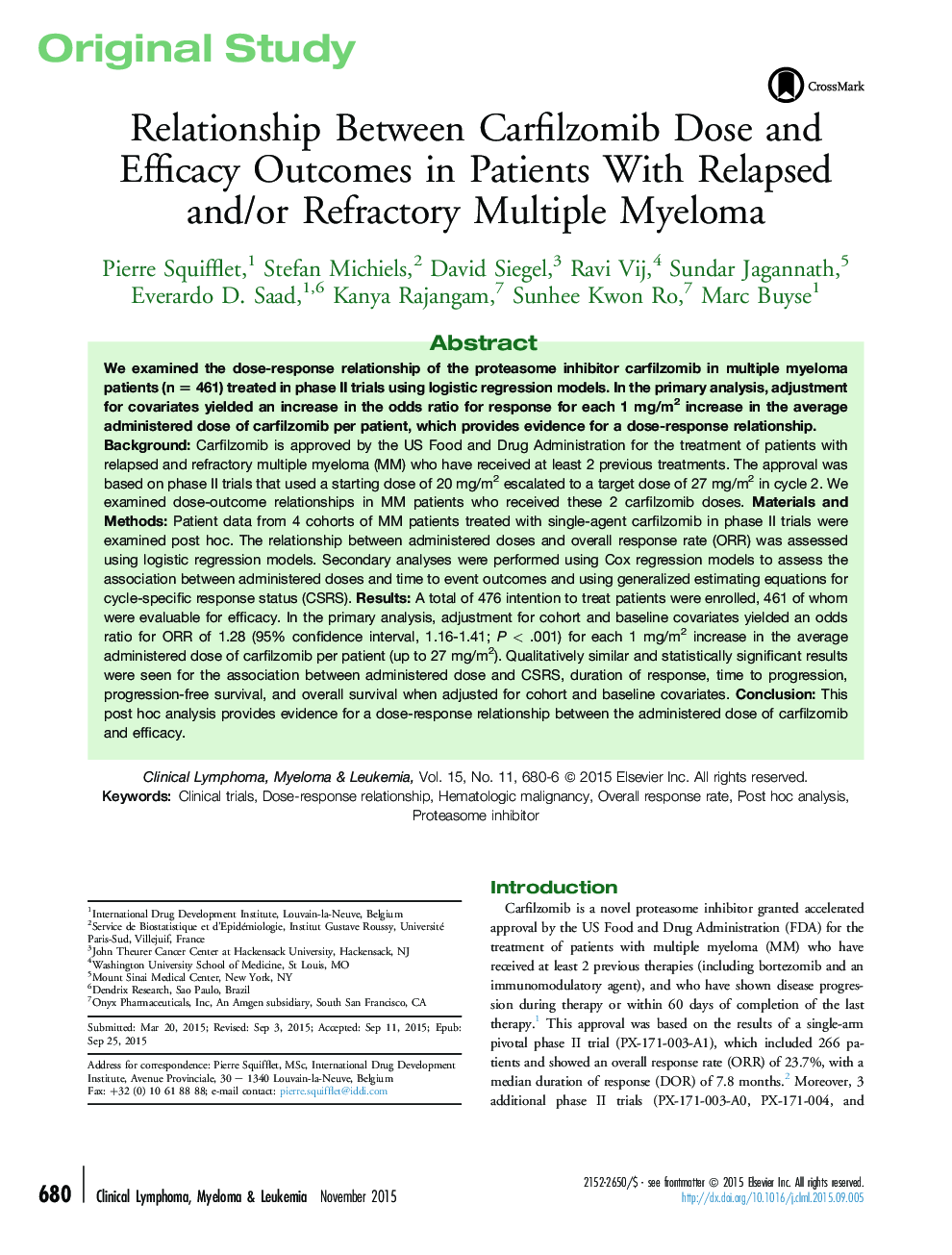| Article ID | Journal | Published Year | Pages | File Type |
|---|---|---|---|---|
| 2754366 | Clinical Lymphoma Myeloma and Leukemia | 2015 | 7 Pages |
BackgroundCarfilzomib is approved by the US Food and Drug Administration for the treatment of patients with relapsed and refractory multiple myeloma (MM) who have received at least 2 previous treatments. The approval was based on phase II trials that used a starting dose of 20 mg/m2 escalated to a target dose of 27 mg/m2 in cycle 2. We examined dose-outcome relationships in MM patients who received these 2 carfilzomib doses.Materials and MethodsPatient data from 4 cohorts of MM patients treated with single-agent carfilzomib in phase II trials were examined post hoc. The relationship between administered doses and overall response rate (ORR) was assessed using logistic regression models. Secondary analyses were performed using Cox regression models to assess the association between administered doses and time to event outcomes and using generalized estimating equations for cycle-specific response status (CSRS).ResultsA total of 476 intention to treat patients were enrolled, 461 of whom were evaluable for efficacy. In the primary analysis, adjustment for cohort and baseline covariates yielded an odds ratio for ORR of 1.28 (95% confidence interval, 1.16-1.41; P < .001) for each 1 mg/m2 increase in the average administered dose of carfilzomib per patient (up to 27 mg/m2). Qualitatively similar and statistically significant results were seen for the association between administered dose and CSRS, duration of response, time to progression, progression-free survival, and overall survival when adjusted for cohort and baseline covariates.ConclusionThis post hoc analysis provides evidence for a dose-response relationship between the administered dose of carfilzomib and efficacy.
